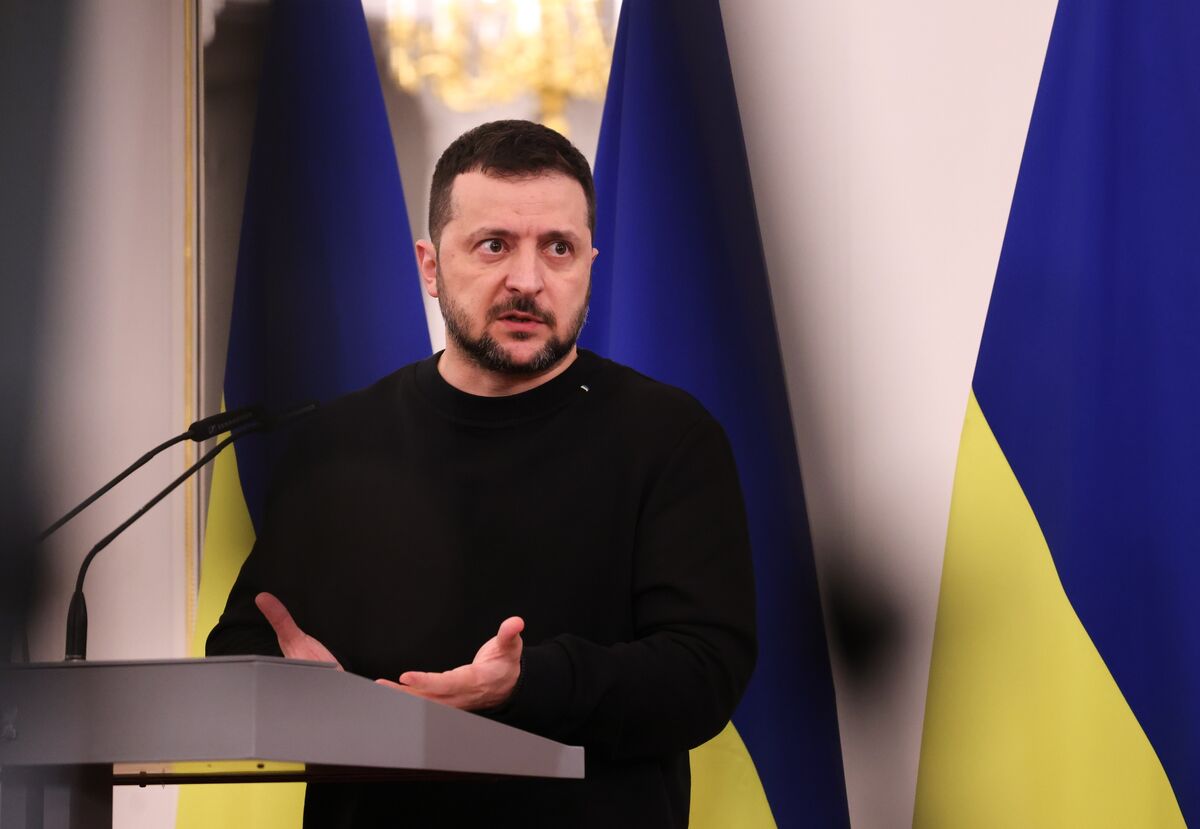Volodymyr Zelenskiy declared his personal income for the first time since the outbreak of war with Russia, as part of his effort to increase transparency in his government.
In 2021, the year before Russia invaded Ukraine, Zelenskiy and his family reported income of 10.8 million hryvnia ($285,000), down 12 million hryvnia from the previous year, even as his income was boosted by the sale of $142,000 of government bonds, according to a statement on his website.
In 2022, the first year of the Russian invasion, the Zelenskiy family’s income fell further to 3.7 million hryvnia as he earned less income from renting real estate he owned because of the hostilities.
Even as the war allowed Ukrainian officials to withhold revealing sensitive personal information, Zelenskiy pushed to make them publicly declare assets. Increasing transparency and tackling graft are necessary for his country to ensure continued financial aid from its western allies, even as more than $100 billion of funds are held up due to political maneuvering inside US and EU.



Agreed. We should (in the US) pay really high salaries to government officials, especially executive office/legislators/judges. Provide huge benefits like paid education and lifetime medical coverage for children and spouses (even if you retire), and a one time home purchase up to a certain amount in any location on retirement. It’s yours and if you sell it, the income is yours too. Pension equivalent to salary, which is raised whenever it’s increased for active government officials, and continues for your spouse after you die.
But in return, you and your spouse must fully divest yourself of any investments of any kind. You must sell any properties you own beyond a home in your constituent state. A home in DC will be provided, if applicable. Your spouse also may not have investments or own properties. Your adult children may have investments if they’re managed by a blind trust.
After you retire, or “age out” at the current full social security age, or at the end of your assigned term after reaching that age, you may not ever hold another job ever again. You may not receive income in any form other than what is paid to you by the pension fund. You (and your spouse) may not own investments of any kind.
Don’t like it? Cool, don’t run for office.